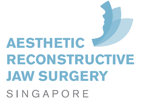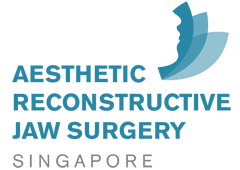Share this
Wisdom Tooth Extraction- is it necessary when it’s not giving problem?
on January 21, 2016

Wisdom tooth extraction in Singapore has become a rite of passage amongst teenagers and young adults. To a certain extent, this is related to a higher rate of orthodontic treatment in this segment of the population. However, should wisdom teeth, aka third molars, be routinely extracted even when they are not giving any trouble? There are currently two main opposing camps; one advocating routine prophylactic removal, another that says that a it should not be removed until it has caused recurrent problems. So which camp is right and which is wrong?
Financial Implications
Before even looking at the argument for or against prophylactic removal proposed by either camp, we need to also look at the socio-economic backdrop. The group that argue for routine prophylactic removal are usually dentists and oral maxillofacial surgeons who practice in a fee for service environment. Wisdom teeth surgery accounts for a large part of their work and income. That’s not to say that the reasons for advocating routine removal are purely financially motivated. There are sound and valid reasons (which we will discuss in a while), but we need to be aware of the financial implications.
The group that advocate surgery only for recurrent problems tend to be third party payers such as a state funded health service or insurance companies. Again, there are financial motives for discouraging prophylactic removal even though there are benefits. To be sure, wisdom tooth surgery is not without risks and no other body part is routinely removed for prophylactic reasons.
Arguments for routine prophylactic removal :
Let’s take a look at the reasons for routine prophylactic removal.
- Youth
Surgery in younger patients is generally uneventful and less traumatic than older patients. Youth has a wonderful healer and even when there’s a complication, the chances of full recovery is better.
- Prevent nerve involvement
Some even advocate removing the third molars before the roots are formed so that the chances of nerve involvement can be prevented. As they erupt much later than the rest of teeth, there is often insufficient space in the jaw to accommodate them and many become stuck or impacted. There are various studies done to try to predict whether they will erupt properly but the results are not conclusive as many factors are involved.
- Prevent crowding
Some dentists also advocate prophylactic removal of third molars for orthodontics to prevent or minimize the risk of relapse caused by their late eruption. Finances also play a role. Some patients who have insurance coverage for the surgery may want to get it done while they are covered.
- Prevent decay and gum disease
Preventive dentistry has become widely accepted as the benefits are proven. Early interventional procedures such as fissure sealants, topical fluoride applications and professional oral hygiene procedures such as scaling have improve oral health and preserve teeth and prevented common diseases such as tooth decay and gum disease. Removal of trouble-free third molars is considered by some to be preventive dentistry as they are inherently useless and can potentially cause decay and periodontal problems with the adjacent teeth.
Arguments against routine prophylactic removal:
For those who argue against such routine prophylactic removal, there are also many reasons for doing so.
Wisdom tooth surgery, like any other surgery, is not without risk. In particular, injury to the nerve providing sensation to the tongue and lower lip can potentially be permanent.
- If it ain’t broken…..
There is no guarantee that an impacted wisdom tooth that is not giving trouble will eventually give rise to problems. Some can live happily ever after without removal. Routine prophylactic removal of an un-diseased body part is never done. A common comparison is the appendix. The appendix is a rudimentary body part that can potentially be infected and in the worst-case scenario, may lead to death. However, nobody does routine appendectomy just because of the potential for complications.
- Affects productivity
Financially, if prophylactic removal is funded by public coffers, it will cause taxpayers billions of dollars. In addition, there is also significant downtime for the patient, which may involve time away from school and work, hence affecting productivity.
The situation in Singapore.
In Singapore, there is very limited public funding for wisdom tooth surgery. There is some degree of subsidy in some public hospitals and a very small number may have insurance coverage. However, the vast majority of patients are self-funded. Without a third party payer, the decision is the patient’s alone. In my practice, I discuss the pros and cons with the patient and the parents if they are minors. Some will choose to proceed with prophylactic removal while others may opt to leave them alone until problems occur. For those who choose prophylactic removal, I will emphasize that the risk of nerve involvement which may cause a change of sensation of the lip and tongue. For those who opt for leaving them alone, I will remind them that by the time pain occurs, the adjacent teeth may be compromised and need treatment as well. In general, younger patients such as those in their late teens and early twenties will opt to remove the wisdom teeth as a preventive measure. This is especially the case of those who are studying abroad and living by themselves in a foreign country. They prefer to remove the wisdom teeth while they are back in Singapore where they have family support for post-operative care. The older ones whose wisdom teeth had already been out for a while without problems will tend to want to see how it goes. This approach is fine so long as regular checkups are maintained so that any problems can be solved before it compromises the adjacent teeth.
Conclusion
While there are guidelines published by various organizations internationally, they are just guidelines. The decision for each patient regarding prophylactic removal lies with the patient himself/herself, depending on his personal preference and social needs. So long as the patient understands the pros and cons of both options, either way is fine.
Share this
- Jaw Surgery (93)
- Dental Implants Singapore (90)
- Orthognathic Surgery (48)
- Replacing Missing Teeth (26)
- Missing Teeth Options (23)
- Underbite (23)
- Bone Grafting (21)
- Costs (18)
- Facial Aesthetics (18)
- Aesthetics (17)
- dental implants (16)
- corrective jaw surgery (15)
- BOTOX (11)
- Dermal Fillers (11)
- Wisdom teeth (10)
- Fixed Implant Dentures (8)
- Loose Dentures Singapore (6)
- Medisave (6)
- sleep apnea (6)
- Braces (5)
- Dental Pain (5)
- Dentures in Singapore (5)
- Loose Teeth (5)
- Tooth Extraction (5)
- jaw deformities (5)
- bimax (4)
- bone graft (4)
- maxillomandibular advancement (4)
- all-on-4 (3)
- bimaxillary protrusion (3)
- chin implant (3)
- facial asymmetry (3)
- full mouth dental implants (3)
- genioplasty (3)
- immediate implant (3)
- removal of an integrated dental implant (3)
- third molars (3)
- wisdom tooth surgery (3)
- My Dentures Don't Fit (2)
- VME (2)
- bone graft healing (2)
- distraction osteogenesis (2)
- medical tourism (2)
- obstructive sleep apnea (2)
- orthodontics (2)
- plastic surgery (2)
- CT guided dental implants (1)
- Double jaw surgery (1)
- Invisalign (1)
- Periodontal Disease (1)
- Permanent Dentures Singapore (1)
- before and after photos (1)
- facial trauma (1)
- fractured dental implant (1)
- oral appliance therapy (1)
- root canal treatment (1)
- veneers (1)
- vertical maxillary excess (1)
- September 2019 (2)
- July 2019 (2)
- May 2019 (2)
- August 2018 (1)
- October 2017 (1)
- September 2017 (2)
- August 2017 (1)
- June 2017 (2)
- May 2017 (4)
- April 2017 (1)
- March 2017 (1)
- February 2017 (3)
- January 2017 (3)
- December 2016 (1)
- November 2016 (2)
- October 2016 (4)
- September 2016 (9)
- August 2016 (5)
- July 2016 (11)
- June 2016 (14)
- May 2016 (6)
- April 2016 (2)
- March 2016 (1)
- January 2016 (7)
- December 2015 (10)
- November 2015 (4)
- October 2015 (9)
- September 2015 (7)
- August 2015 (1)
- July 2015 (6)
- June 2015 (3)
- May 2015 (7)
- April 2015 (5)
- March 2015 (8)
- January 2015 (5)
- December 2014 (7)
- November 2014 (7)
- October 2014 (6)
- September 2014 (8)
- August 2014 (5)
- July 2014 (7)
- June 2014 (8)
- May 2014 (9)
- April 2014 (10)
- March 2014 (6)
- February 2014 (8)
- January 2014 (3)
Subscribe by email
Email subscription




No Comments Yet
Let us know what you think